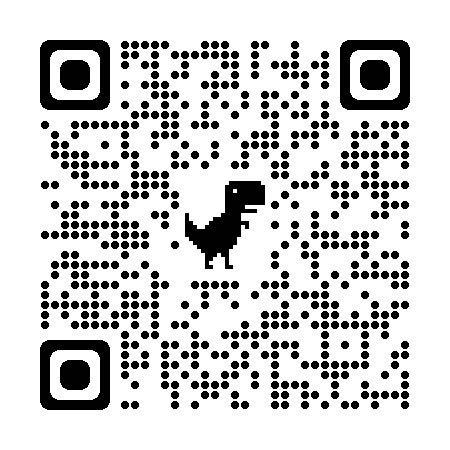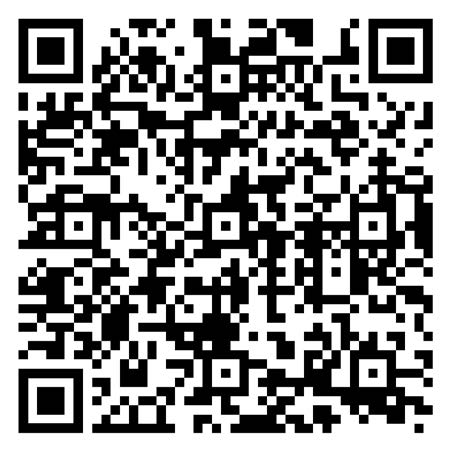
Volunteering for a research study can make a real difference to millions of people affected with mental health problems.
The UBC Department of Psychiatry conducts multiple studies on the causes of mental disorders and on potential new treatments.
Research studies aiming to evaluate the effectiveness of potential treatments are called clinical trials. Treatments can include medication, psychological therapy, neuromodulation, or other types of therapy.
For interested individuals, the research team provides detailed information about the procedures involved to enable them to reach an informed decision about their participation.
VOLUNTEER FOR A RESEARCH STUDY OR CLINICAL TRIAL IN:
Major Depressive Disorder
The bWell Cognitive Care Platform: A pilot feasibility study in patients with depression
Project Lead: Dr. Trisha Chakrabarty, Assistant Professor of Psychiatry, UBC Department of Psychiatry, Faculty of Medicine
Funding: National Research Council Canada
Years: 2
Individuals with depression often suffer from problems with cognition (for example, problems with memory, attention and processing speed). This study explores the usage of the virtual reality to see whether it is feasible, enjoyable, and useful to help reduce cognitive issues for those with depression. You may be eligible for this study if you are 19-55 years old with a history of depression, and have noticed cognitive difficulties in your day-to-day life. To learn more about this study, please contact vrstudy.bwell@ubc.ca or see the resource below:
bWell Cognitive Care Platform Information
Feasibility Study of Long-Term Light and Ion Therapy for Maintenance Treatment in Depression (LIMIT-D)
Project Lead: Dr. Raymond Lam, Professor of Psychiatry, Mood Disorders Centre, UBC
Funding: Canadian Institutes of Health Research (CIHR)
Years: 3
This study explores the use of two separate non-medication treatments, light therapy and ion therapy, as a substitute for antidepressant medications to prevent return of symptoms when stopping antidepressants (AKA relapse). We modified half of the treatment devices so that they are inactive (AKA placebo). You have a one in two chance (like a coin flip) of receiving an active device. You may be eligible for this study if you are 19-65 years old, have taken an antidepressant for depression for at least 3 months and no more than 12 months, are no longer depressed and want to stop medications, and are willing to use a study device for 30 minutes a day at home for 6 months. To find out more about this study or contact lam.mddresearch2@ubc.ca or see the resources below:
Optimized Predictive Treatment In Medications for Unipolar Major Depression (OPTIMUM-D) Study
Project Lead: Dr. Raymond Lam, Professor of Psychiatry, Mood Disorders Centre, UBC
Funding: Canadian Institutes of Health Research (CIHR)
Years: 5
The purpose of this OPTIMUM-D study is to (1) test whether a specific combination of biomarkers discovered during our previous studies can help predict how someone will respond to treatment, and (2) to explore other possible biomarkers that may predict treatment response. This information may help us develop tests in the future that can guide treatment choice more effectively and more quickly. To find out more about this study or contact lam.mddresearch2@ubc.ca or see the resources below:
Study Eligibility & Participation Details
Additional information about clinical trials in Major Depressive Disorder can be found on the Mood Disorders Centre’s website.
Patient-Oriented Randomized Pragmatic Feasibility Trial with rTMS in Depression and Anxiety (PORT)
Project Lead: Dr. Fidel Vila-Rodriguez, Associate Professor of Psychiatry, UBC
Funding: Michael Smith Foundation for Health Research (MSFHR)
Years: 2020-2025
This trial compares the efficacy of two different neuromodulation treatments, intermittent theta-burst stimulation (iTBS) and low frequency repetitive transcranial magnetic stimulation (rTMS), for depression and anxiety symptoms in patients with treatment resistant depression (TRD), who are diagnosed with either major depressive disorder or bipolar disorder. Participants will be randomized to receive either iTBS or low frequency rTMS. This study also involves assessments of mood, blood smears, and cognitive assessments. For more information, please email ninet.lab@ubc.ca; call 604-822-7308; or visit https://ninet.med.ubc.ca
Left Intermittent Theta Burst Stimulation vs. Right Low Frequency Repetitive Transcranial Magnetic Stimulation Effectiveness in Depression and Suicidal Ideation: A Randomized Non-Inferiority Trial (LeRNIT)
Project Lead: Dr. Fidel Vila-Rodriguez, Associate Professor of Psychiatry, UBC
Funding: Canadian Institutes of Health Research (CIHR)
Years: 2020-2025
The purpose of this trial compares the efficacy of two non-invasive neuromodulation treatments, low frequency repetitive transcranial magnetic stimulation (rTMS) and intermittent theta burst stimulation (iTBS), in treating patients with Major Depressive Disorder and suicidal ideation. Participants will be randomized to receive either daily iTBS or daily rTMS over 6 weeks. The study includes assessments of mood, MRI brain scan, recording of heart rhythm (ECG), cognitive assessments. For more information, please email ninet.lab@ubc.ca; call 604-822-7308; or visit https://ninet.med.ubc.ca
Additional information about clinical trials in Interventional Brain Medicine can be found on NINET Lab’s website here…
Bipolar Disorder
Cannabidiol Adjunctive Therapy for Acute Bipolar Depression: A Randomized Double-Blind, Placebo Controlled Trial
Project Lead: Dr. Lakshmi Yatham, Professor of Psychiatry, UBC
Funding: Canadian Institute of Health Research
Years: 2023-2029
This study investigates whether adding Cannabidiol (CBD) to the current medications of people diagnosed with bipolar disorder improves symptoms of depression over a 6-week period compared to a placebo. We are seeking people diagnosed with bipolar disorder (type 1 or 2) who are 19-70 years of age, currently experiencing a depressive episode, and taking a medication for mood stabilization (lithium, valproate/epival, risperidone, olanzapine, quetiapine, aripiprazole, ziprasidone, lamotrigine or a combination of these). The study involves clinical questionnaires, blood samples, and tests of memory, attention, and concentration. Compensation will be provided for participation. For more information, please email bipolar.research@ubc.ca or call at 604-822-8045.
More information can also be found at: https://bit.ly/UBCCBD
Schizophrenia
MAST Trial: Magnetic Seizure Therapy for Schizophrenia
Project Lead: Dr. Fidel Vila-Rodriguez, Associate Professor of Psychiatry, UBC
Years: 3-4
This study is comparing two non-invasive neurostimulation techniques (ECT and MST) in the treatment of schizophrenia and schizoaffective disorder, with half of participants receiving each treatment. Participants will visit UBC 2 days a week for around 8 weeks to receive treatment, with each visit taking about 2 hours including preparation and recovery. Participants may be eligible to participate if they are 19 or older, diagnosed with schizophrenia or schizoaffective disorder, have not responded to at least 2 medications, and are comfortable receiving brain stimulation treatments under general anesthesia. For more information, please email ninet.lab@ubc.ca; call 604-822-7308; or visit https://ninet.med.ubc.ca
Additional information about clinical trials in Interventional Brain Medicine can be found on NINET Lab’s website here…
Cog-MP
Project Lead: Dr. Todd Woodward
Funding: Canadian Institutes of Health Research (CIHR)
Years: 4 years
Memory is an important predictor of how well individuals affected by psychosis are able to function in their social and occupational lives. However, the exact structures and functions in the brain responsible for this relationship are currently unknown. Through this study, we would like to better understand the relationship between the brain, memory, and functioning. We hope that our findings will ultimately contribute to the improvement of functioning in psychosis.
This is a neuroimaging study that involves two in-person visits. It is open to participants with a diagnosis of a schizophrenia spectrum disorder. The first visit lasts approximately 2.5 hours, during which participants complete some questionnaires, clinical interviews, and cognitive tasks. The second visit also lasts about 2.5 hours. Participants perform some cognitive tasks and then undergo an MRI scan while completing tasks inside the scanner. Participants receive $40 for the first visit and $80 for the second visit, totalling $120 in cash.
For more information, please email brain.dynamics@ubc.ca; or see the resource below:
AVATAR
Project Lead: Dr. Mahesh Menon
Funding: Canadian Institutes of Health Research (CIHR), and Vancouver Coastal Health Research Institute (VCHRI)
Years: 18 months
Audio Visual Assisted Therapy for Refractory Auditory Hallucinations (AVATAR) is a groundbreaking new approach that was developed in the United Kingdom (UK). We are developing our own version of the Avatar therapy approach.
The study is open to participants with a diagnosis of a schizophrenia spectrum disorder who have struggled with persistent voices (occurring more than once a week for over 12 months).
In this form of therapy, participants work with a therapist to collaboratively build an ‘Avatar’ which looks and sounds like the dominant voice that they struggle with. They engage in dialogue with the voice (with support from the therapist) to learn to respond assertively and increase their sense of control and power over the voices. Over the course of therapy, the Avatar changes from being demeaning or threatening to becoming more supportive.
During therapy sessions, the participants will engage in dialogue with the Avatar using a virtual reality headset. This is a waitlist-control design so all participants will receive the therapy. They complete 4 assessments (at 3 month intervals), and are paid $30 per assessment ($120 in total).
For more information, please email psifi.lab@ubc.ca; or see the resource below:
ORBIT
Project Lead: Dr. Mahesh Menon
Funding: Canadian Institutes of Health Research (CIHR)
Years: 4 years
This study aims to examine how well the combination of therapies (cognitive behavioural therapy and cognitive remediation therapy) would work for improving symptoms of psychosis, cognitive skills (e.g., attention, memory, problem solving), and the ability to engage within one’s community. Separately, these two treatments have been evaluated in the past with promising results; however, it is unclear how well they work when combined.
The study is open to participants with a diagnosis of a schizophrenia spectrum disorder who have not had CBT or CRT within the past 6 months. Participants are randomized to one of three conditions (CR+CBT, CR + other therapy, or sham CR + CBT). Thus all participants will receive at least one clinical intervention. Participants will complete four assessments in total: one before treatment initiation, one shortly after treatment completion, as well as 6 and 12 month follow up assessments.
Participants are paid $30 per assessment.
For more information, please email psifi.lab@ubc.ca; or see the resource below:
Addictions
SCANS: Spontaneous Craving and Neurophenomenology in Smokers (In-Person)
Project Lead: Dr. Christian Schütz, Professor (Partner), UBC Department of Psychiatry
Years: Ongoing
The main purpose of this study is to assess a new method to study cigarette smokers’ experience of craving. To do this, you will be asked questions about your craving regularly while watching film clips. If you agree to take part in this study, you will first need to complete an online survey to determine your eligibility. You may be contacted by phone or email to arrange completion of some follow-up questions (questions will be completed via phone interview). For more information or to express your interest in participating, please email brainlab.scans@ubc.ca.
Additional information can be found this resource page.

